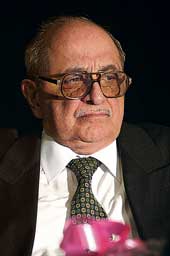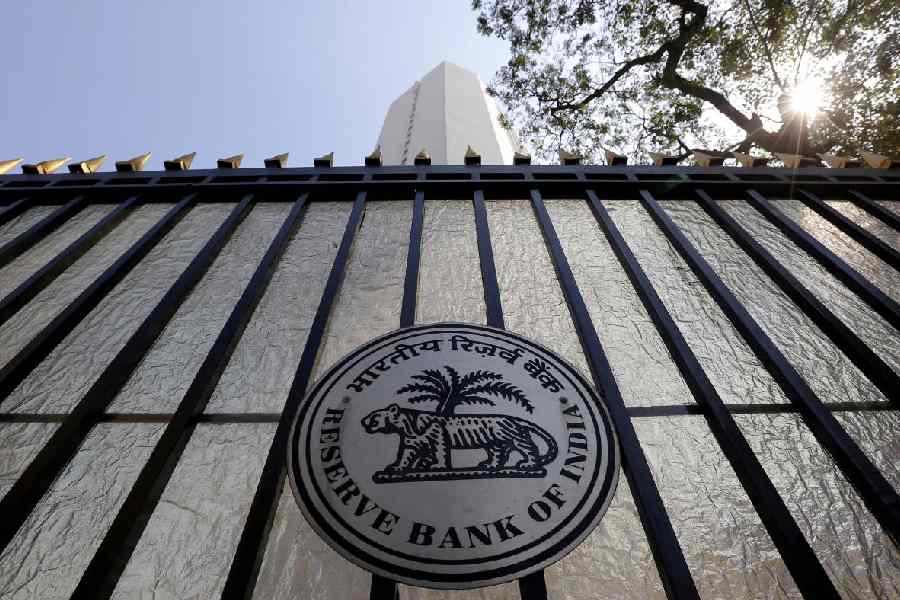 |
| Advocate Fali S. Nariman: Hidden magic. Picture by Sanjoy Chattopadhyaya |
The West Bengal National University of Juridical Sciences organised the inaugural Durgadas Basu Memorial Endowment Lecture on Saturday. The lecture was delivered by noted advocate Fali S. Nariman, and the topic for the evening was ?The Silences in our Constitutional Law?.
Nariman, considered the foremost exponent of Indian constitutional law, lectured on the intricacies and vagaries of the Indian Constitution, interspersed with humorous and often thought-provoking anecdotes and case laws.
?The Indian Constitution contained 395 Articles with a Bill of Rights, and an Appendix of eight Schedules in the official edition of 251 pages. One could not wish it to be any longer,? said the advocate.
Nariman said the first lesson about written Constitutions is that they do not function on their own, but a special effort has to be made by the custodians to make them work.
He took the example of James Callaghan, who had said that the ultimate mark of a true democracy is the willingness of a government defeated at the ballot box to surrender power peacefully to its opponents.
According to Nariman, the Indian Constitution, embodying a parliamentary form of government, was not only a compulsion of geography, shaken and divided by the Partition in 1947, but was also a compelling accident of history. He said: ?Take the opening words of our Constitution, We The People. There is hidden magic in these words. If it means the people of India who were born long before 1950, as were the Constitution?s founding fathers, then it must be out of tune with the vast majority of the people of India, born after 1950. The answer to the above conundrum is realised through the process of interpretation and court decisions.? India has had a majoritarian government for a number of years. Forceful assumptions of power and amendments that have been steamrolled into being passed have occurred as well.
The eminent lawyer spoke frankly on the role of the President of India. In Nariman?s opinion: ?It is not only the judiciary who has plumbed the depths of silence, so have the Presidents.?
But in their defence, Nariman points out that there have been occasions when the President of India has stood up to the elected mandate.
He cited the example of former President K.R. Narayanan, who returned a Proclamation, sent to him for Promulgation by the Government, then led by I.K. Gujral.
Also present on the dais was former Justice Chittatosh Mookerjee, who said: ?There are silences in our Constitution, but it is hoped that the same silences may speak loudly when required.?
With a lively interactive session following the lecture, Nariman touched upon several subjects such as the role of the vice-president and reservation of seats for the backward classes in the private sector.
Paying rich tribute to Justice Durgadas Basu, Nariman said: ?We will never be able to piece together a new Constitution in the present day and age even if we tried, because innovative ideas, however brilliant and beautifully expressed, cannot give us a better Constitution. This is one reason why I believe that the great commentary of Durgadas Basu on our written Constitution will never become obsolete or outdated.?










